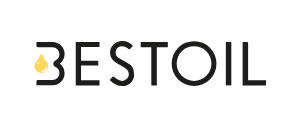Sustainable production –
the foundation of WOROL’s operations

News
10 minutes to read
Sustainable production – How WOROL cares for the environment
At WOROL, we’ve always prioritised sustainable production that benefits the environment. Find out what steps we’re taking to sell our products with pride and a clear conscience.

WOROL on the market
Consumers are increasingly seeking healthy, natural products such as rapeseed oil, which is characterised by a low content of saturated fatty acids and a high level of omega‑3. This trend drives demand for high-quality vegetable oils, and the different degrees of refinement offered by WOROL allow us to reach a wide range of customers.
WOROL products are also used for biofuel production. Changes in energy policies and growing interest in renewable sources may increase demand for rapeseed oil as a raw material. Although WOROL focuses on edible oil, it may indirectly feel the impact of rising demand in this dynamically growing sector.
The growing interest in organic and sustainably produced goods is shaping the entire agri-food industry. Rapeseed cultivation practices must meet increasingly strict standards, affecting companies processing plant-based raw materials as well.
WOROL operates in several sectors sensitive to health, sustainability, and environmental trends, which inherently requires alignment with ESG standards.
Our sustainability efforts
WOROL strives to minimise the environmental impact of production through efficient resource management and CO₂ reduction. By-products such as rapeseed meal and soap may facilitate a more sustainable use of raw materials.
As part of our activities:
We recover heat from oil, boiler exhaust, and compressed air.
We monitor production in real time, reducing resource usage and achieving maximum process efficiency.
We carry out regular inspections and maintenance to minimise breakdowns and improve efficiency.
Used batteries and other waste are handed over to specialised companies authorised to manage, recycle, and dispose of waste.
We implement tools to reduce mixed waste through a segregation system introduced at every potential waste generation point. We source raw materials through deliveries in tankers, intermediate bulk containers, and returnable packaging.
We ensure safe storage of waste in designated areas.
Waste is transferred to specialised entities as quickly as possible.
Thanks to these measures, you can be confident that by choosing WOROL products, you are partnering with a company that genuinely cares about the well-being of everything around it.
Stay up to date.
Industry news and insights
At WOROL, we keep our finger on the pulse, staying informed about both our business and the broader market. Catch up on the latest news from the world of oilseed rape.
Vegetable oils have a wide range of applications. They’re healthier and more versatile than you might think. Stay up to date with our industry insights.
Frequently asked questions
Browse our list of frequently asked questions or
get in touch using the contact form.
What are the main properties of rapeseed oil?
Rapeseed oil has a neutral taste and a high content of unsaturated fats. It is rich in monounsaturated fatty acids (omega‑9) and also contains polyunsaturated fatty acids such as omega‑3 and omega‑6. Its high smoke point makes it ideal for frying.
Rapeseed oil obtained from double low (00) varieties is a versatile product, suitable for both culinary and industrial use, and is considered the healthiest vegetable oil for human consumption.
Does rapeseed oil contain omega‑3 fats?
Yes, rapeseed oil contains omega‑3 fatty acids, mainly alpha-linolenic acid (ALA), which supports the health of both the heart and the brain. It also plays an important role in the function of nervous tissue.
What are the advantages of rapeseed oil compared to other vegetable oils?
Rapeseed oil has one of the lowest saturated fat contents among vegetable oils, making it a healthy choice. It also offers an ideal ratio of omega-6 to omega-3 fatty acids, which is beneficial for cardiovascular health. Other benefits of rapeseed oil include:
- a high content of oleic acid, which helps lower blood cholesterol, particularly harmful LDL;
- a balanced 2 : 1 ratio of essential polyunsaturated fatty acids: linoleic acid from the omega-6 family and linolenic acid from the omega-3 family;
- the lowest content of saturated fatty acids, which are undesirable in the human diet;
- the presence of active substances such as tocopherols, phytosterols, carotenoids, and polyphenolic compounds, which have antioxidant properties, protect the body against free radicals, and reduce LDL cholesterol levels.
Does rapeseed oil contain cholesterol?
No, rapeseed oil, like other vegetable oils, does not contain cholesterol.
What is the energy value of rapeseed oil?
The energy value of rapeseed oil is approximately 884 kcal per 100 g.
What can rapeseed oil be used for?
Rapeseed oil is widely used in the kitchen for frying, baking, salads, and as an ingredient in sauces. In the cosmetics and pharmaceutical industries, it is used in skincare products.
In addition, rapeseed oil is used in the production of: methyl esters of fatty acids, which are components of biofuels; industrial oils; lubricants; hydraulic transmission fluids; oil-based paints and varnishes; printing inks; oleochemicals; and linoleum.
Is rapeseed oil suitable for frying?
Yes, rapeseed oil is perfect for frying. It has a high smoke point (240 °C), which allows for safe frying at higher temperatures, and it contains a high level of monounsaturated fatty acids. As a result, it retains its properties during frying. Thanks to its high tocopherol (vitamin E) content, rapeseed oil is highly stable, making it resistant to high temperatures.
Can rapeseed oil be used in baking?
Yes, rapeseed oil can be used for baking, due to its high smoke point, neutral taste, and health benefits.
Can rapeseed oil be used in cosmetics?
Yes, rapeseed oil is used in skin and hair care cosmetics for its moisturising and regenerating properties.
Thanks to its antioxidant and beta-carotene content, it rejuvenates and brightens the skin. It prevents excessive dryness and soothes symptoms of conditions such as psoriasis.
What industrial uses does rapeseed oil have?
Rapeseed oil is used in the production of biofuels, industrial lubricants, and as a raw material for oleochemicals.
What is the rapeseed oil pressing process like?
The pressing process involves grinding the rapeseed, heating it, and pressing out the oil. It is also possible to carry out the pressing process without using high temperatures, which is known as cold pressing.
What is the difference between cold-pressed and refined rapeseed oil?
Cold-pressed oil contains more nutrients and retains its natural flavour and aroma. Refined oil is cleaned of impurities, making it last longer and giving it a mild, neutral taste.
What is the difference between unrefined and refined rapeseed oil?
Unrefined rapeseed oil retains more natural nutrients but has a shorter shelf life. Refined oil is more stable and better suited for high-temperature cooking.
What are the health benefits of consuming rapeseed oil?
Consuming rapeseed oil supports heart health, lowers cholesterol levels, has anti-inflammatory properties, and promotes healthy circulation thanks to its omega‑3 fatty acid content. Our product:
- strengthens the immune system,
- supports the nervous system,
- improves skin condition,
- regulates blood clotting,
- supports the respiratory and digestive systems.
Is rapeseed oil good for the heart?
Yes, rapeseed oil is considered heart healthy thanks to its low levels of saturated fat and high level of omega‑3. The omega‑3 and omega‑6 polyunsaturated fatty acids it contains have a beneficial effect on the heart muscle function and the circulatory system as a whole.
Is rapeseed oil suitable for people on a low-fat diet?
Rapeseed oil contains healthy unsaturated fats, which are recommended in moderate amounts as part of a low-fat diet.
Does rapeseed oil support skin health?
Yes, rapeseed oil is used in skin care products thanks to its moisturising and nourishing properties.
Is rapeseed oil safe for children and pregnant women?
Rapeseed oil is safe for children and pregnant women due to its favourable fatty acid profile.
What are the environmental benefits of using rapeseed oil instead of other oils?
Rapeseed oil has a lower carbon footprint compared to other oils, and its cultivation requires less pesticides and less water. The rapeseed used in production is locally sourced and grown mainly in Poland, which means that the carbon emissions from transport and distribution are significantly lower than for other raw materials.

Get in touch
with our team
We offer a wide range of rapeseed oils for your business.
Explore the possibilities of working with us.





















